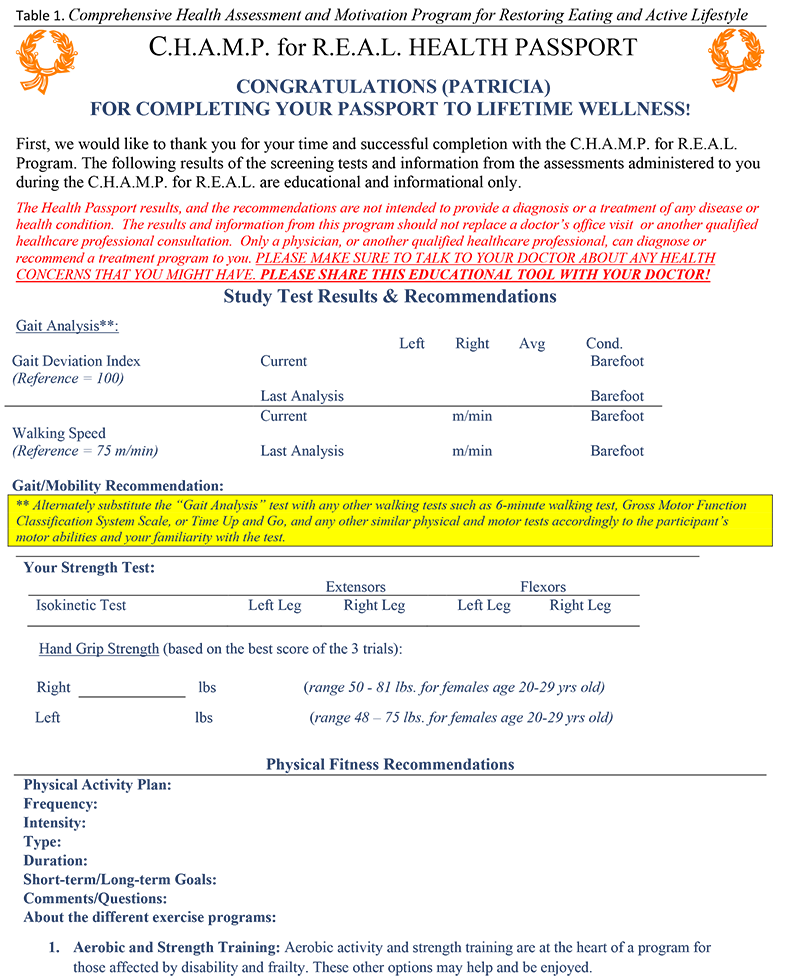CPAT Health-Self Promotion and Health Passport Tool Initiative
Promoting and maintaining optimal health and function in individuals with disabilities is a must. The CDC reported that in order to have health benefits, the Guidelines recommend that all adults, with or without disabilities, get at least 150 minutes (2.5 hours) of aerobic physical activity per week. Activities can be broken down into smaller amounts, such as about 25 minutes a day every day. Muscle-strengthening activities, such as adapted yoga or working with resistance bands, provide additional health benefits.
Thus, one of the main goals of the CPAT project is to identify risk factors associated to chronic diseases and as well as identify approaches to intervene and prevent disease and health decline in adults aging with CP. We developed a pragmatic health promotion engagement platform where participants could choose to come to the study site to participate in a focus health promotion activity, to discuss their current health issues and challenges.
Our approach is to compile the study results into an easy-to-understand and personalize “Health Passport and Self-Health Empowerment Consultation” tool for the participants to learn about their health with the goal to generate a plan for health improvements with their physicians’ involvement. Usually, the tests and procedures. Participants are encouraged to share their Health Passport results and recommendations with their primary health care provider to engage their doctor in their “Health Plan Customization” with the goal to increase communication and knowledge about the patients’ health needs. We will also provide guidance and support for healthy lifestyle choices.
Our research team is composed of several experts in health promotion approaches for people with disability, and we have already evaluated and tested “Health Passport” tool in the previous CPAT study where it shows to be feasible, well-received, and adopted by the study participants.
Copyright © 2021 by Patricia C. Heyn, PhD, FGSA, FACRM and James Carollo, PhD from the University of Colorado Anschutz Medical Campus, All rights reserved. The creation of this document was funded by the NIDILRR #90IF0055-01. No part of this publication may be reproduced, distributed, or transmitted in any form or by any means, including photocopying, recording, or other electronic or mechanical methods, without the prior written permission of the authors. For full details on the distribution and use of this document can be surmised by the Creative Commons Attributions ShareAlike, For permission requests, contact the authors at
Patricia.Heyn@cuanschutz.edu.
Publications and chapters
- Robertson D, Heyn P, Pan Z, Carollo J. Cerebral Palsy Adult Transition Study (CPAT): Health Passport Consultation Follow-up Study. Archives of Physical Medicine and Rehabilitation.97(10):e76., 2016.
- Schwartz J.K., Capó-Lugo C.E., Heyn P.C. (2019) Health Self-Management. In: Prasher V., Janicki M. (eds) Physical Health of Adults with Intellectual and Developmental Disabilities. Springer, Cham.
